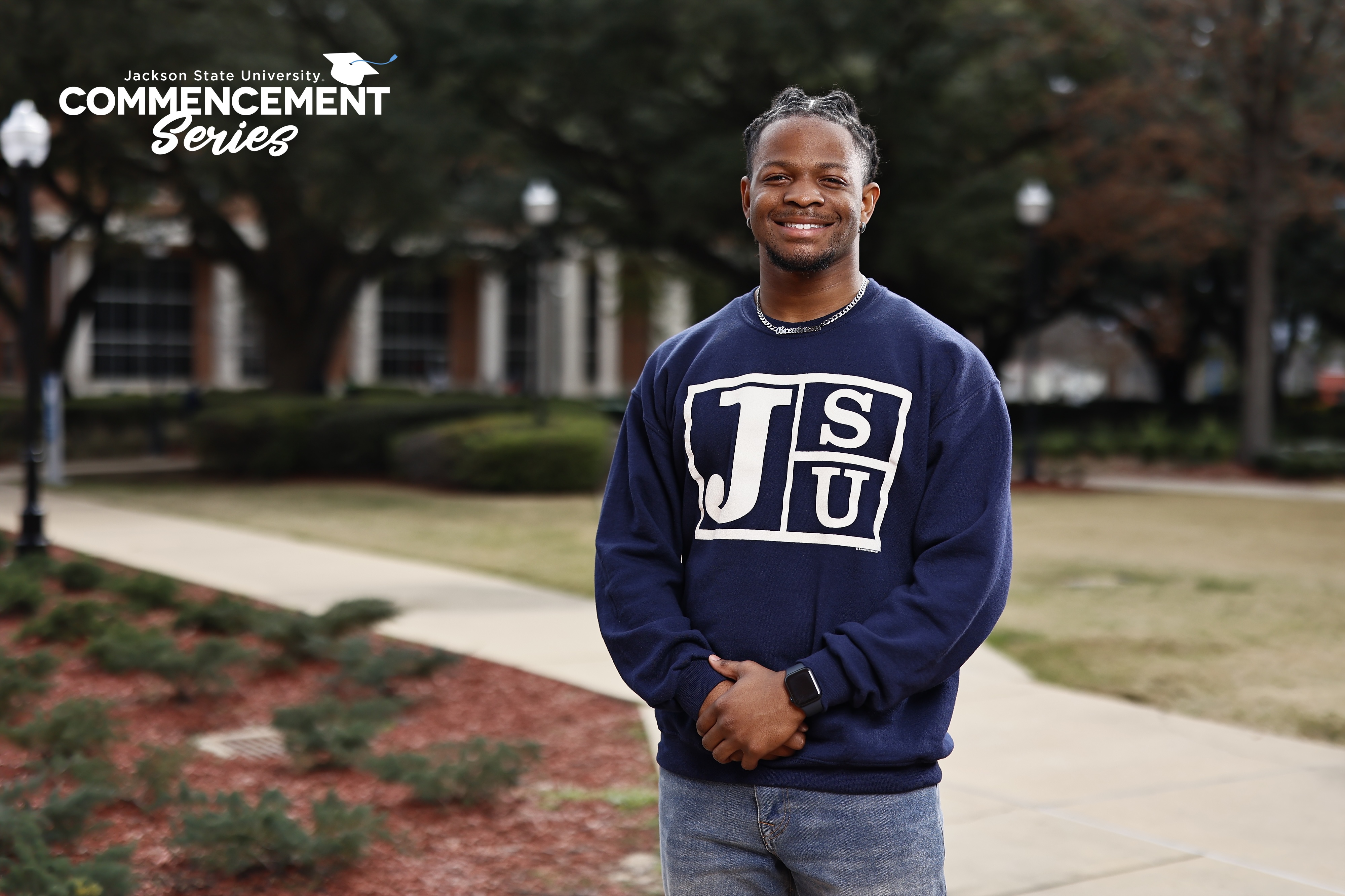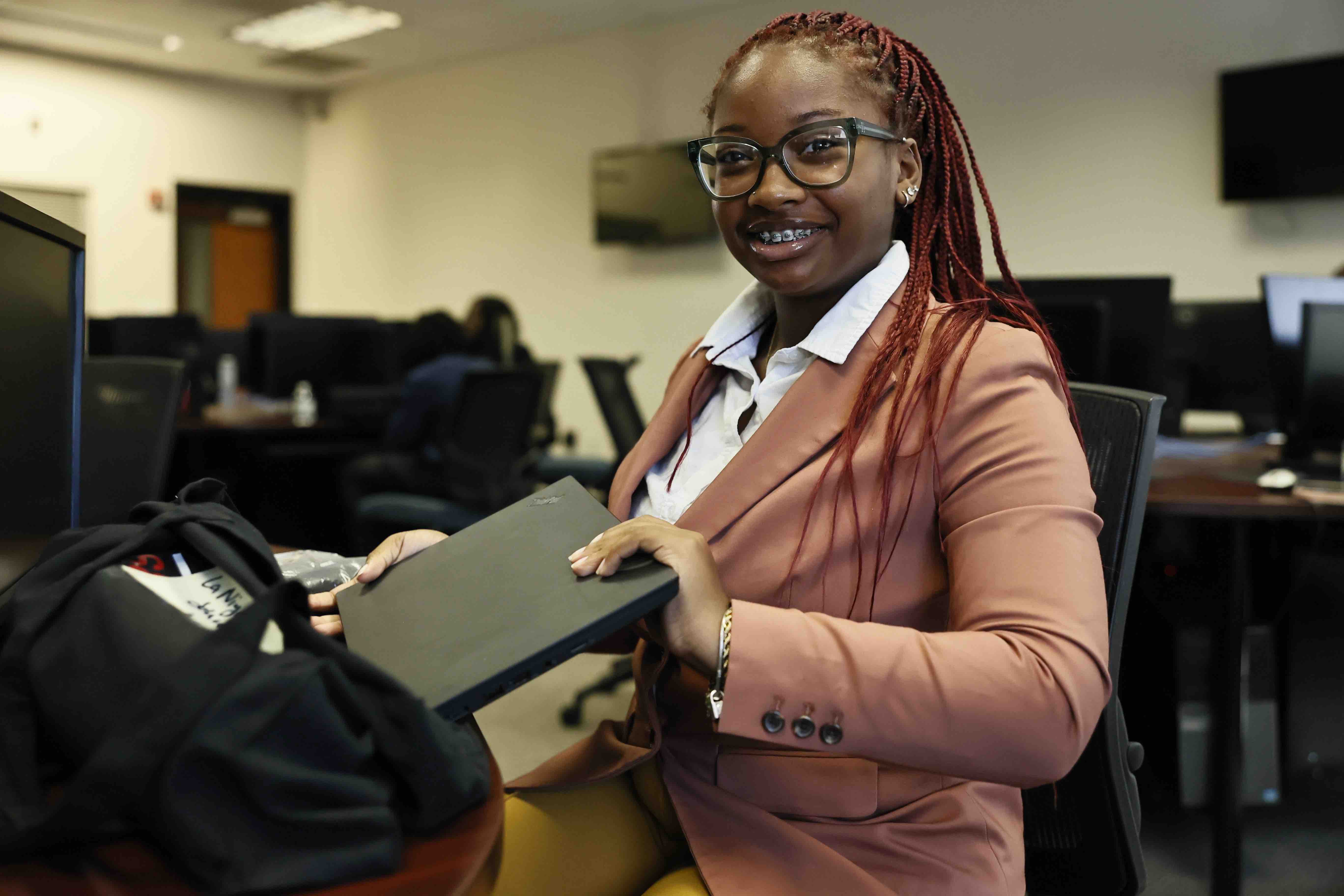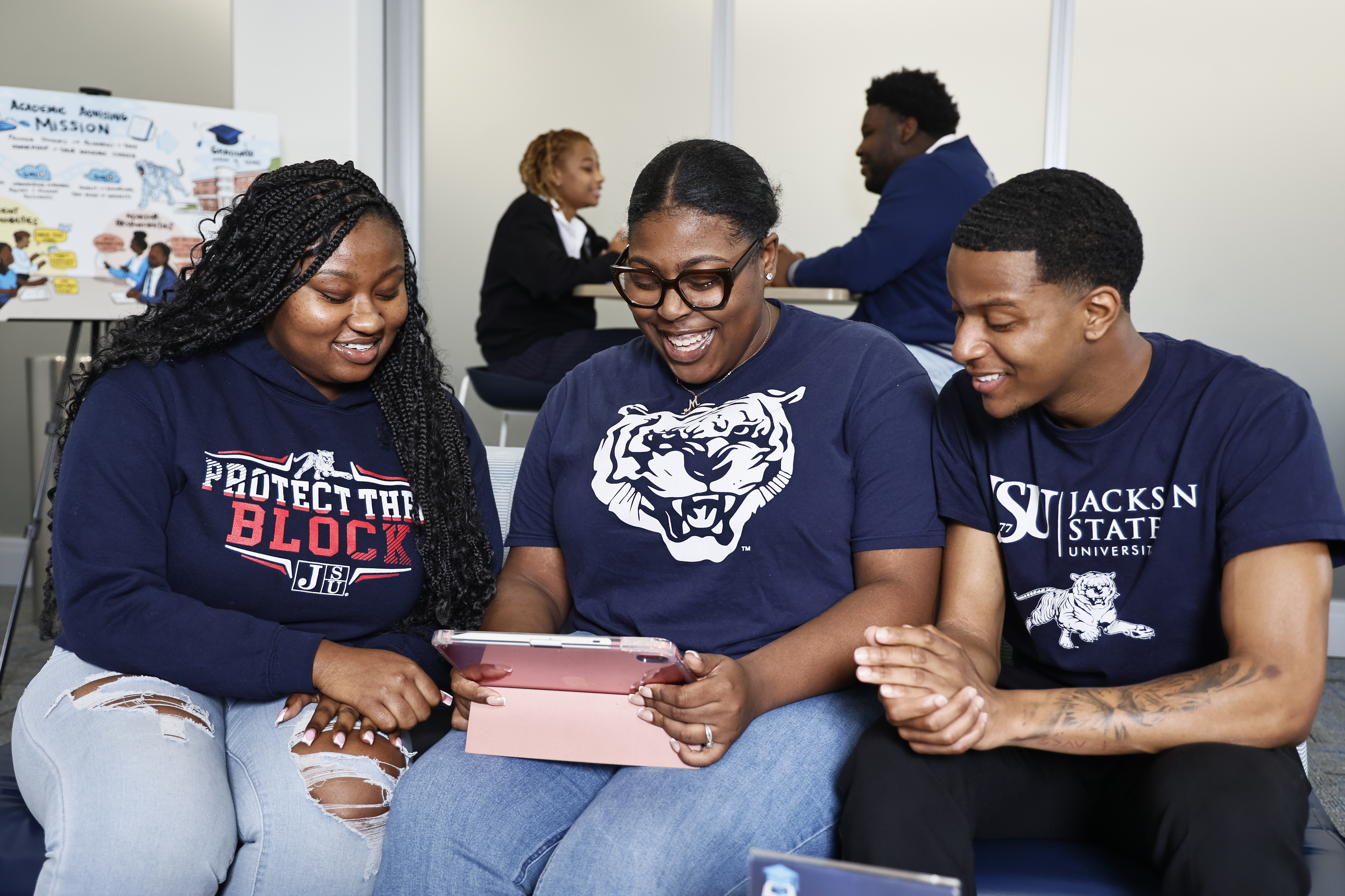![]()
[hr]The Division of Student Affairs and the Latasha Norman Center For Counseling recently organized Denim Day inside the JSU Student Center to spread the word about campus assault nationwide and make sure Jackson State University eliminates abuse and becomes S.A.F.E. (Sexual Assault Free Environment).
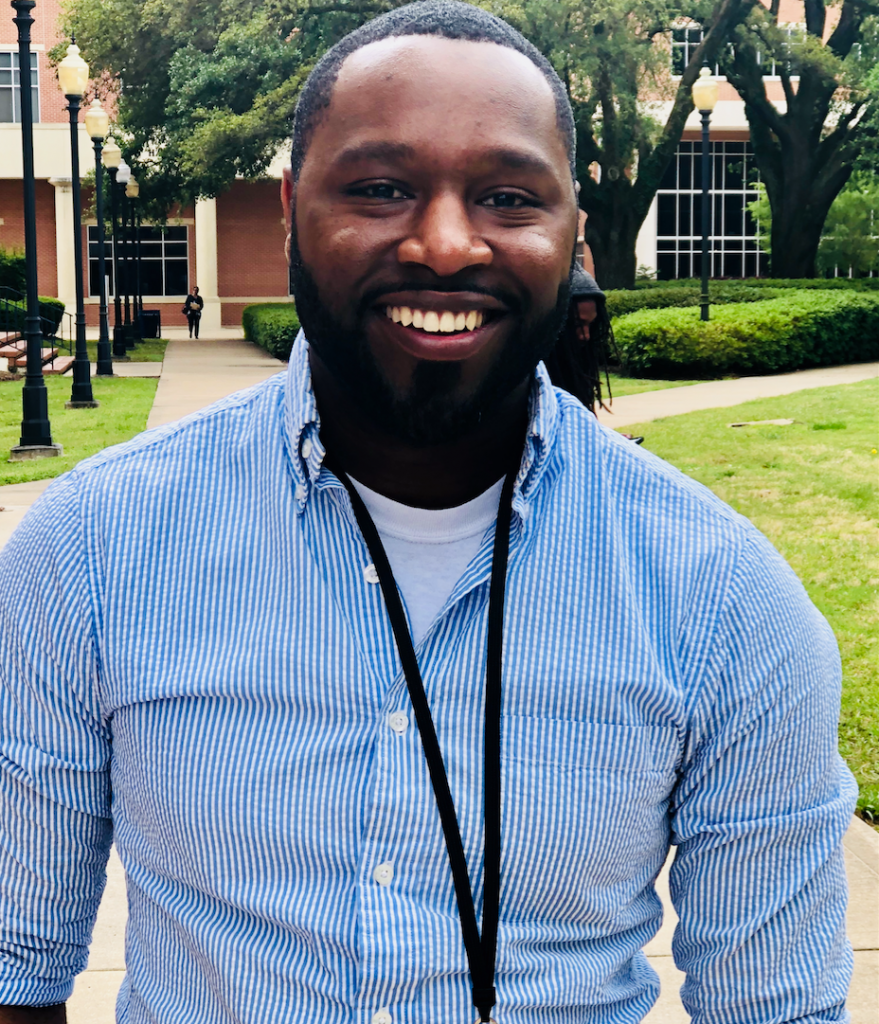
Denim Day was organized to raise awareness about such violence. The ONE S.A.F.E JSU event is in response to a notorious case by an Italian court that declared a rapist innocent. It said the victim wore jeans so tight that she must have helped her attacker remove the denim, thus implying consent.
Antonio Horton is a counselor for the Latasha Norman Center and project coordinator of S.A.F.E. He said, “With this event, we wanted students to make a statement and show their support. We know that a lot of students don’t know what Denim Day represents, but we want to get the word out about our prevention efforts.”
The event coincided with April’s National Sexual Assault Awareness Month. It aimed to get a consensus from students about their knowledge of sexual assault and violence. “We want to know what students are saying what consent is and whether they feel safe here on campus,” Horton said.
As a result, S.A.F.E. enlisted peer educators who are “for students and by students” to help facilitate the event. “We know that students respond better to those like themselves.,” Horton said.
Leaders also conducted a climate survey to gather feedback from students on how the campus can better respond to clients and victims. S.A.F.E. received more than 200 responses detailing students’ ethnicities and their feelings about safety. It also asked whether they know about available resources and if they know the universal process for handling sexual assault crimes.
Horton said, “The information will provide S.A.F.E. with basic information on how we can improve our systematic way of handling these crimes. We want people to know what they need to do. We’ve discovered that there is a lot of misconception regarding the reporting process and the mission of the Latasha Norman Center for Counseling. Some people think the center is for domestic violence only as opposed to addressing all mental health concerns.”
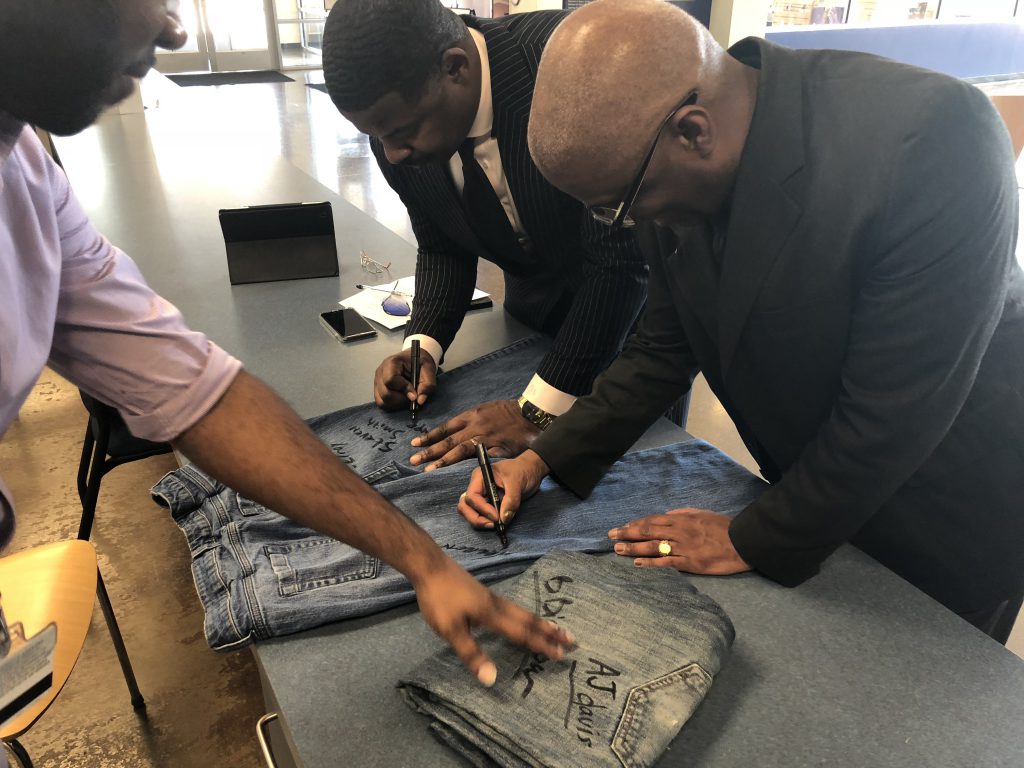
Furthermore, Horton said, “Sexual assault has many branches: stalking, dating violence, domestic abuse, human trafficking. It’s not limited. Assault can be verbal, psychological, emotional and physical. We define abuse as a pattern of manipulation of one partner over the self-esteem of another.”
He wants students to take the time to assess how they feel in a relationship and to notice potential red flags.
“A lot of people don’t know what a healthy relationship is, so they can’t identify when something is wrong – even if we give them all the signs. An abuser is someone who hits you, is rigid or unstable. And, at the same time, they can be just like any of us. That’s why it’s important to assess how you feel in that relationship.”
S.A.F.E. wants everyone to know that many abusive situations are underreported and affects all races and demographics. It includes male-to-male and woman-to-male abuses.
Horton also notes that relationships within LBGT communities can be very challenging. “What’s considered extreme in one may not be extreme in another. Lesbian couples, for example, have really complex-relationship dynamics.”
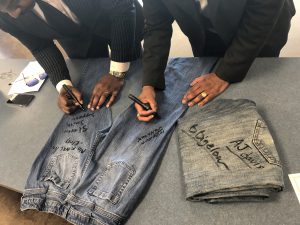
In general, Horton wants to help empower people in any type of relationship to reach out for support. He said the type of assistance administered depends on the individual. “Some may not want to report abuse but just want counseling.”
Regardless, he wants people to know that the Latasha Norman Center is there to counsel and guide them and understand that the center works closely with JSU Public Safety and Title IX.
“Unfortunately, there’s not enough dialogue about assault,” said Horton, urging students to take action beyond awareness.
“That’s why we established the peer educator group. We hope to recruit hundreds who will become passionate about this issue and spread the word.”
Overall, Horton said Denim Day was successful with help from instructors encouraging students. “We’ve had a lot of support from key players, and we’re finding better ways to reach students.”




